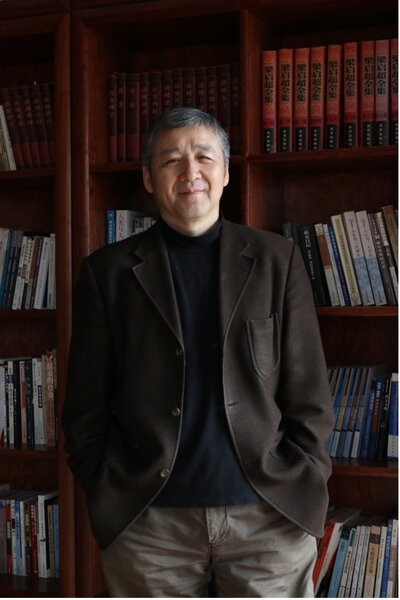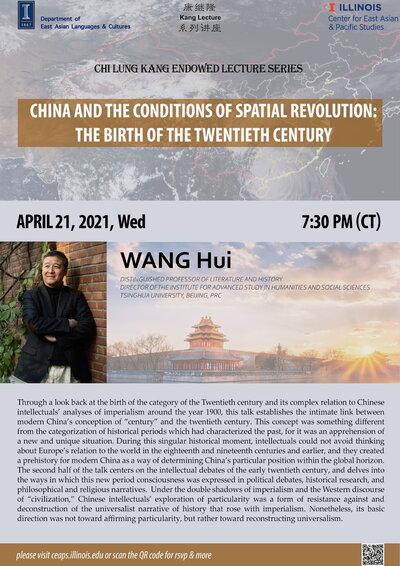WANG Hui, Distinguished Professor of literature and history, director of the Institute for Advanced Study in Humanities and Social Sciences at Tsinghua University. In 1980s, he did his research under Professor Tang Tao's guidance, who was Lu Xun's student and a famous literary historian. In 1990, Wang Hui published his first book Resisting Despair: Lu Xun and His Literary World in Taiwan and later in Shanghai (1991). Afterwards, he moved to the study of Chinese intellectual history and engaged in a series of intellectual debates from 1990 up to now. His main works include The Rise of Modern Chinese Thought (4 volumes), The Depolitized Politics, From an Asian Perspective: The Narrations of Chinese History, etc. Many of his works have been translated into different languages including books in English such as China's New Order, The End of the Revolution, The Politics of Imagining Asia, China from Empire to Nation-State, China's Twentieth Century, etc.

Professor Wang Hui gave the inaugural talk "China and the Conditions of Spatial Revolution: The Birth of the Twentieth Century" online on Apr 21, 2021.
About the Inaugural Talk
Through a look back at the birth of the category of the Twentieth century and its complex relation to Chinese intellectuals’ analyses of imperialism around the year 1900, this talk establishes the intimate link between modern China’s conception of “century” and the twentieth century. This concept was something different from the categorization of historical periods which had characterized the past, for it was an apprehension of a new and unique situation. During this singular historical moment, intellectuals could not avoid thinking about Europe’s relation to the world in the eighteenth and nineteenth centuries and earlier, and they created a prehistory for modern China as a way of determining China’s particular position within the global horizon. The second half of the talk centers on the intellectual debates of the early twentieth century, and delves into the ways in which this new period consciousness was expressed in political debates, historical research, and philosophical and religious narratives. Under the double shadows of imperialism and the Western discourse of “civilization,” Chinese intellectuals’ exploration of particularity was a form of resistance against and deconstruction of the universalist narrative of history that rose with imperialism. Nonetheless, its basic direction was not toward affirming particularity, but rather toward reconstructing universalism.

In addition, Professor Wang Hui led a graduate session hosted by Professor Jeff Martine in his seminar “The Anthropology of Modern China.”